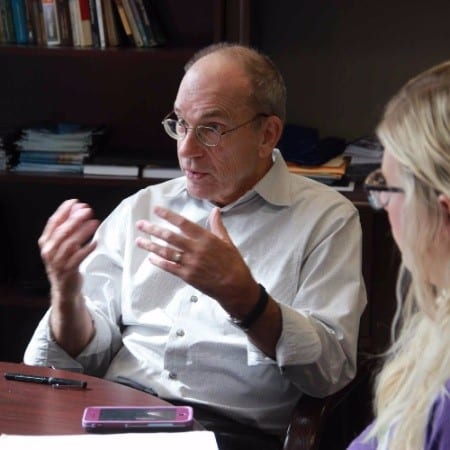Volunteer Spotlight: Dr. Don Zimmerman
Jun 28, 2018 volunteer volunteer spotlight
 A near-death experience compels the University of New Orleans professor to shift his career focus and steers him toward the end-of-life choice movement.
A near-death experience compels the University of New Orleans professor to shift his career focus and steers him toward the end-of-life choice movement.
Volunteer Don Zimmerman spent the first 20 years of his career as a policy researcher in D.C. working with Congress and executive agencies on a wide variety of national health policy issues. He then turned to full-time academic work at the University of Maryland University College as professor and director of their Graduate Healthcare Administration Program. Four years ago, however, Don was hospitalized with a massive medical event — a thoracic aneurysm and ensuing septic shock — that not only threatened but changed his life.
“After being in the ICU for 43 straight days, close to dying, I went through something called ‘ICU delirium,’ which it turns out affects two- to three-million people a year,” Don explains. “The way I describe it is as your worst nightmare that then gets worse, and then doesn’t end. It’s a horrible experience.”
Don was released from the hospital after two months “literally traumatized” but motivated to examine what had happened to him. From a clinical point of view, his life was saved, so in that respect the healthcare system succeeded. “But from a personal-experience point of view, it cost me my own deep sense of who I was as a person,” Don says. As he started to recover, he was drawn to a new purpose in his work. “I felt like I had been given a gift,” he said. “I came out with a very strong sense that the rest of my professional life is going to be devoted to representing the voice of the patient.”
Don has since shifted his research focus from policy to patient experience. He is now professor of Healthcare Management at the University of New Orleans and has written a book called Person-Focused Healthcare. His book has served as his framework for ongoing research studies aimed at improving the personal experience of patients. “My research is all about helping clinicians to better see and treat the needs of the person and not just the patient under their care.”
As part of our Executive Volunteer Program, which benefits from the specialized skills and knowledge of many of our supporters, Don serves in an advisory role for C&C programs related to the patient experience and fully informed consent.
“There’s a lot to be done,” he admits. “Legal restrictions really constrain the ability of the person to take control of their own experience of their care. We have to start looking at that so we can open up the conversation about what informed consent about end of life care really means to us — as a person.”


